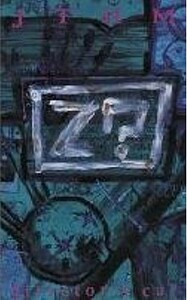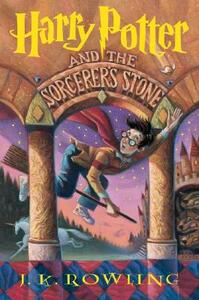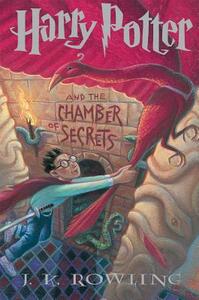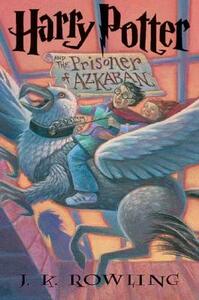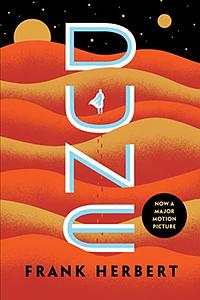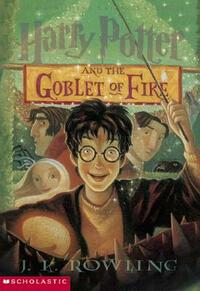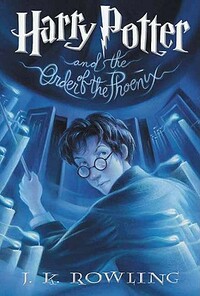Take a photo of a barcode or cover
the_scrivener_named_bartleby's Reviews (139)
One of the best comics of all time. It's honestly strange to realize most people know Jhonen Vasquez through Zim and his more silly endeavors, and he ultimately pivoted his career fully into that. But Johnny the Homicidal Maniac dipped a lot more into self-exploration, and mixed a lot of gritty elements and art in with silly nonsense. There'd be deep monologues about suicide ideation and misanthropy, and they'd be brought on by the fact that the main character was denied a Slurpee from a 7-11 analogue. It's honestly great, and as far as comic go I'd put this high up there with things like Maus or Watchmen, even.
I'm not a fan of books where it's about an author wanting to get published, it's the same as reading comics about cartoonists or artists complaining about art. This also weirdly always hovers on its fantasy versus reality elements, and it's never clear how committed I should feel about either. I dunno. I read this years ago and I'm not sure I was a fan.
Oh there's also a goth gf character literally a decade before that was a meme. (The book as a whole occasionally dips into weirdly lewd territories at times.)
Oh there's also a goth gf character literally a decade before that was a meme. (The book as a whole occasionally dips into weirdly lewd territories at times.)
I'm not big on self-help books. This, however, is written by Stephen King, and since he clearly knows how to write and has experience with the craft, he can balance well between instructional advice for writing, writing his own memoir, and crafting a highly engaging story to follow it. This represents an exception in my tastes, which is to say people who like all of the above as genres will likely find this a great read, while for the rest of us there's still something to enjoy.
A fully fleshed-out universe from the get-go. The beginnings of this series are probably the best, in hindsight--there was a lot of discovery and a lot of desperation to have as many of her ideas out on paper as possible, and even though sometimes classes can feel like filler, it really does serve to make the reader feel like they themselves are attending a magical school and are free from the mundane.
This one's just fine. A lot of it retreads the same ground as the first book, including a contrivance for the main villain coming back, finding some new mysterious creatures, getting a new Defense Against the Dark Arts teacher, etc. Still, I think people simply just wanted to come back to Hogwarts and see what the gang was up to over the summer and spend time there again, and this book exists only to test the waters of if the first book was merely a fad or if ol' J.K. could uphold that momentum. Seems she could, and I definitely read the crap out of this over and over, but in hindsight, eh. It was only alright. There was something a lot more mystical about the first.
This is where shit hits the fan. The first book was a unique idea, the second was testing the waters to test people's investment. This is where Rowling wrote a whole bunch of lore for characters that would become beloved, but the point is now is when Harry Potter became a "long-term" project, i.e. this would be sequelized until there were no feasible other ways the franchise would go and then some. It's notable that Voldemort is not back in this book and only this book, as if to prime us for four (five? Cursed Child?) more sequels. The least happens in this book, and Hermione gets a power that never comes up again (until Book 8, I suppose.)
Long term plot hook complications notwithstanding, it's still more pleasant adventures with Harry and his friends, and that simple premise is always welcome and comfy to settle into.
Long term plot hook complications notwithstanding, it's still more pleasant adventures with Harry and his friends, and that simple premise is always welcome and comfy to settle into.
This book is not without its flaws but it is a miraculous undertaking. I wouldn't call what it tries a very "standard" narrative; that is to say, while it does follow Paul Atreides and there are characters, the main character is almost the world itself and how the reader unspools it over the course of reading it. The only reason we follow Paul is that we are watching a relatively unimportant figure pass from obscurity into myth and legend, whether he wants to or not. The rest of the characters are almost supplements and fulfill roles rather than act as characters with agency--not that Paul himself is one with any higher agency, for that matter, but there is an overall air of fate and predestination and omen throughout it. The mythologizing of Paul is supplemented with every chapter beginning with some quote from an in-universe text that has long since apparently deified Paul, and it becomes stressful when Paul begins to actively try opposing it and you as a reader know that he is destined to become a legend.
Now there are flaws:
1. I don't like how overly sentient the characters are. With the exception of one character getting drunk, everyone knows everyone else's intent in conversation, and what they mean by a certain gesture, etc. This gets worse in the writing: In A Song of Ice and Fire, for example, chapters are written by changing points of view frequently, so we get only a specific character's observations on what has happened. In Dune, the organization is similar, but we'll shift very suddenly from, say, Paul's internal monologue to a very sudden cross-section of Jessica's or Leto's understanding of the situation in the same paragraph. However, this might just be my taste.
2. It is a bit of a grind to read. For one, if you're looking for any humor or you need jokes to cut the tension, this is not the book for you. For perspective, there is literally only one time the characters laugh, but honestly the only time you will be laughing is maybe at some irony at how something was phrased. This didn't bother me, but for all the reasons Dune is great: this uncharacteristic development of a hero over time while still seeming so inhumanly detached and aloof--it is also difficult to read. It is literally unlike anything I have ever read, and so reading it kinda required me to re-wire my brain at times to follow it.
3. Glossary or not, many times you're peppered with a lot of jargon. Most times it is possible to understand from context, but at certain times you simply allow the Fremen and Imperial slang to just wash past you to simply move on.
Now these are flaws that I think are just a matter of my taste and kept me from being so hooked that I finished the book in a night, and it takes it from a perfect five to a four. I think everyone should read this book regardless, and these gripes are more of a warning prior to going in to the actual text rather than it being something to scare people off. Incredible, and I'm so glad I got a boxed set so I can move right into the next one.
Now there are flaws:
1. I don't like how overly sentient the characters are. With the exception of one character getting drunk, everyone knows everyone else's intent in conversation, and what they mean by a certain gesture, etc. This gets worse in the writing: In A Song of Ice and Fire, for example, chapters are written by changing points of view frequently, so we get only a specific character's observations on what has happened. In Dune, the organization is similar, but we'll shift very suddenly from, say, Paul's internal monologue to a very sudden cross-section of Jessica's or Leto's understanding of the situation in the same paragraph. However, this might just be my taste.
2. It is a bit of a grind to read. For one, if you're looking for any humor or you need jokes to cut the tension, this is not the book for you. For perspective, there is literally only one time the characters laugh, but honestly the only time you will be laughing is maybe at some irony at how something was phrased. This didn't bother me, but for all the reasons Dune is great: this uncharacteristic development of a hero over time while still seeming so inhumanly detached and aloof--it is also difficult to read. It is literally unlike anything I have ever read, and so reading it kinda required me to re-wire my brain at times to follow it.
3. Glossary or not, many times you're peppered with a lot of jargon. Most times it is possible to understand from context, but at certain times you simply allow the Fremen and Imperial slang to just wash past you to simply move on.
Now these are flaws that I think are just a matter of my taste and kept me from being so hooked that I finished the book in a night, and it takes it from a perfect five to a four. I think everyone should read this book regardless, and these gripes are more of a warning prior to going in to the actual text rather than it being something to scare people off. Incredible, and I'm so glad I got a boxed set so I can move right into the next one.
This book exists to bring the big bad back for future installments and give the series an anime-style tournament arc. It's just more adventures in Hogwarts. Fans will like it--they'll like anything written in this series--but over time I think this one was just especially forgettable.
Best one of the series. The action is constant, all the characters are extremely developed, and the new faces are charming, both the good and the evil ones. It's been ages since I liked Harry Potter--the public discourse, the author getting weird, and god knows what else--but this is still the one I remember the most fondly and the one that had the most in it.
There's something very graceful and elegant about this book, in the way it encourages you to want to write. It does get a little bogged down in flowery detail and anecdotes that pull away from what I think is the thesis about writing, but they are not unpleasant to read, either.
